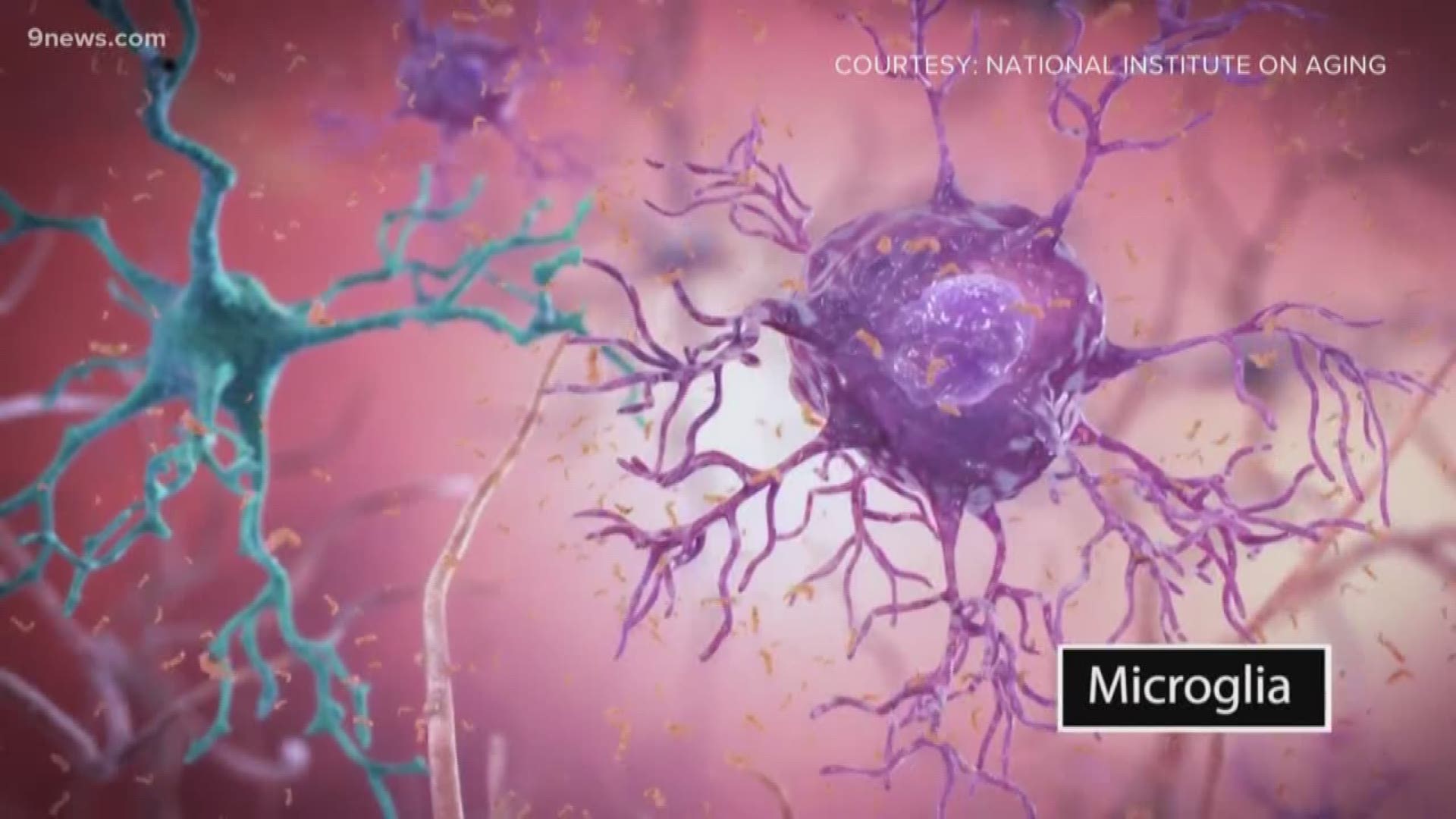DENVER — According to the Alzheimer’s Association, 5.8 million Americans are living with Alzheimer’s.
This number is projected to skyrocket to 14 million people by 2050.
Pat Bowlen, who just passed away, and with his wife Annabel Bowlen both have been diagnosed with Alzheimer’s.
RELATED: ‘Inspiration for Coloradans:’ Alzheimer’s Association releases statement after Pat Bowlen’s death
Here are the basics on Alzheimer’s Disease and its treatment.
What is Alzheimer’s?
A healthy brain has approximately 100 billion neurons, which are the brain’s nerve cells that connect different parts of the brain and allow us to learn, feel, and act.
With Alzheimer’s, a person’s brain cells have specific proteins which accumulate outside of the neurons (beta-amyloid) and block their ability to talk to each other, and inside the cells (tau) which damage and destroy them.
Over time, a person will begin to lose their memory, ability to think critically, do their activities of daily life, and even the ability to learn.
Although the average age of Alzheimer’s diagnosis is in the 80s, it is believed that Alzheimer’s starts about 20 years before actual symptoms are seen.
How does Alzheimer’s disease progress?
There are three stages of an Alzheimer’s diagnosis- preclinical, mild cognitive impairment (MCI) and dementia.
The preclinical is before symptoms are apparent. It is an area under investigation to see how the people can be diagnosed earlier with biomarkers of disease, so treatment can begin before symptoms appear.
The MCI stage is where the symptoms are more noticeable. The person can often still function well, but close friends and family members may start to notice a loss of memory, language issues, or the person being more generally “forgetful.”
The disease progresses over time, a little bit differently for each person. Ultimately, a diagnosis of dementia is made.
This can be mild initially, where the person requires some assistance, but can still do most things independently. Then, this will progress to moderate dementia which is the longest stage.
The person has more difficulty with their activities of daily living like bathing, going to the bathroom, communicating with other people and can even start to have some personality changes.
The final stage is severe dementia, when the person’s neurons are completely affected and they will become bed-bound and have difficulty swallowing and moving around.
How does this relate to brain health?
There is a strong link between all of the factors we think about that are important for the heart, like high blood pressure, cholesterol and even diabetes.
Just as these risk factors affect the heart, they also affect the small vessels which supply blood to the brain.
When blood pressure is high, it is a strong force going through tiny, fragile blood vessels. Over time, with uncontrolled high blood pressure, those blood vessels become weaker, damaged and start to build up cholesterol plaques.
Ultimately, this can lead to silent strokes and areas of low blood flow the brain. Those areas of low blood flow decrease the flow of blood to the neurons in the brain and ultimately lead to dementia.
What are some recent advances in Alzheimer’s research and care?
There is no cure for Alzheimer’s, but there are medications which can slow down or even stop the damage to the brain’s neurons which are central to your thinking, learning, communicating and being able to do your daily activities.
One of the biggest areas of research right now is in the preclinical stages, trying to identify Alzheimer’s much earlier, before a lot of the damage is done to the brain through new biomarkers.
And, the treatment is also changing quickly, with more emphasis being placed on how to help retain the cognitive functions which are so important.
Follow 9NEWS Medical Expert Dr. Comilla Sasson on Facebook and Twitter. Have a medical question or health topic idea? Email Dr. Comilla at comilla.sasson@9news.com
SUGGESTED VIDEOS | Local stories from 9NEWS

